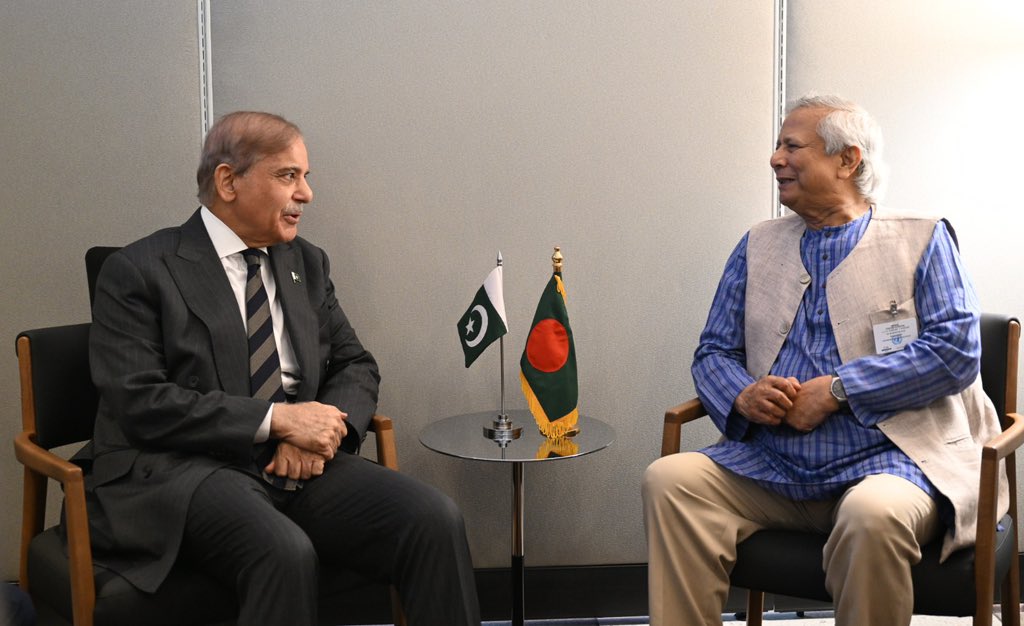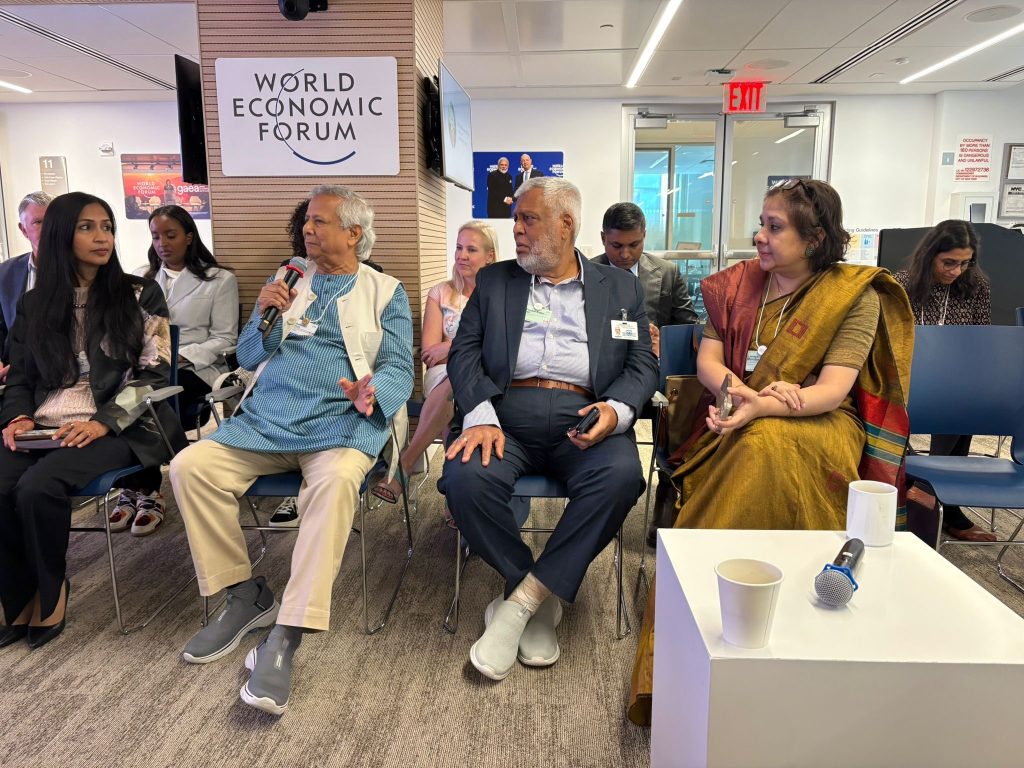When Muhammad Yunus was the managing director of Grameen Bank, he used to travel abroad frequently for personal purposes on the office’s expenses. He used to stay only half of a month in Bangladesh and rarely visited the office, according to a confidential letter from the bank’s general manager, Prof Khandaker Mozammel Haque, in 2000.
After capturing power in August last year through a meticulously designed coup, Yunus has visited foreign countries 13 times in about 14 months. Besides, his family members, close aides, special assistants and other advisers are also regularly visiting abroad using government funds.
There is also criticism that some advisers have been seen taking part in “unimportant” events.
Even though special instructions were issued in December last year for advisers or government officials to travel abroad, none of them are being followed. Questions have also been raised about the foreign travel of advisers or officials by spending government money and the extent of Bangladesh’s achievements.
On Thursday, Yunus returned home after visiting the United States to attend the United Nations General Assembly. He was accompanied by several advisers of the government, government officials and six representatives of three selected political parties.

According to a government document, at least 106 people were enrolled in the tour with the chief adviser. However, the Chief Adviser’s press secretary, Shafiqul Alam, claimed in a Facebook post last week that the entourage had 62 people.
At the end of last month, Transparency International Bangladesh (TIB) issued a statement, questioning the rationale of sending such a large delegation on a foreign trip with public tax money. Executive Director of TIB. Iftekharuzzaman told BBC Bangla: “We thought that the number of delegations would be less this year than last year. But it has increased.”
During the previous governments, there were many criticisms about foreign trips with a huge fleet or foreign trips of advisers and bureaucrats. Now the civil society-backed interim government is following the same path.
US Tour: Size of entourage exposes nepotism, abuse of power by Yunus
US Tour: Selfish Yunus puts aides in distress
Sajeeb Wazed, Arafat, Nanak ridicule Yunus for deceptions on UK tour
During his US tour, according to an official document, Yunus was accompanied on this visit by at least 100 people, including some advisers, special assistants to the chief adviser, secretaries, politicians, security forces and officials.
After TIB’s statement, Shafiqul Alam made a post on his verified Facebook page on September 26. He claimed that the number of members in the delegation of Bangladesh to the 80th UNGA was less than during the Sheikh Hasina era, but it is also much more goal-oriented and hardworking.
At least 57 people participated in this UN conference last year, though the government initially said that only seven people would be in the entourage. This time, the number is 62 people, said the press secretary. Actually, he lied because the number of people visiting the US with government funds was at least 106.

Analysts say that only a few of the tour companions have the opportunity to attend the scheduled speech of the head of government of Bangladesh at the UNGA. For that reason, they also questioned the rationale of attending the UN session with such a large number of travel companions.
Former Secretary Abdul Awal Majumdar told BBC Bangla: “We had high expectations from this government. But they could not even come close to our expectations. Now, in some cases, three or four people are going together. It seems like they are going on a picnic.”
Sheikh Hasina vows to bring Yunus, BNP, Jamaat, militants to justice
Sheikh Hasina: I was misguided by Yunus’ sweet talk on poverty alleviation
Sheikh Hasina reflects on her achievements, condemns rising poverty and violence
Dr. Iftekharuzzaman said: “More than a hundred people have gone. If so many people have to go, there must be a logical basis. They are going to promote the interests of the entire state by taking into account the national interest. What is their specific role, and how are they playing their role?”
In June, Yunus visited the UK and held a meeting with BNP leader Tarique Rahman. It was discussed that he had taken a large delegation to the service. A possible meeting with the UK Prime Minister was talked about during that visit, but in the end, it did not happen, and many criticisms were also made about it.
It has been almost 14 months since the interim government took office. At this time, it was seen that discussions and criticisms were made about the foreign trips of high-ranking officials, including the advisers to the government, the special assistants to the chief adviser.
In August and September of this year, Information Adviser Mahfuj Alam visited the US and the UK. Most of these events were organised by the Bangladesh Embassy.
Another student adviser, Asif Mahmud Shojib Bhuyain, was also seen travelling abroad at least three times in the last year. He visited the UAE in October last year, Switzerland in November, and Morocco in June this year.
It has been seen in government documents that there are many questions about the importance of many of the foreign trips that advisers or bureaucrats have made at different times in the past year.
Former secretary Abdul Awal Majumdar said: “There is anarchy in our country in the name of travelling abroad. There are no rules. There is no duty of conscience. If you get a chance, you go abroad, waste money, and lose your job. It becomes like an addiction.”
He was saying that the current government is the new government after the mass coup in July-August. This government could not change the rules of the past. Rather, they are walking on that path.
Is the government following its own instructions?
In December, the Office of the Chief Adviser issued 13-point special instructions regarding foreign travel. Along with discouraging foreign travel, advisers and secretaries were asked to avoid foreign travel at the same event.
This directive was issued under the signature of M Siraj Uddin Mier, Chief Secretary of the Office of the Chief Adviser.
In the 13-point directive, generally discouraging foreign travel, keeping a list of possible foreign travel for the year, creating a ministry-based database for foreign travel (the Office of the Chief Adviser will create a structure and store its information), and avoiding foreign travel by government officials at all levels, responsible for the ministry Adviser and secretary should generally avoid travelling abroad together.
In addition, it was also stated in the directive that if such a trip is absolutely necessary for national interest, the secretary of the ministry and the head of the subordinate directorate or organisation shall not go on a foreign trip together unless it is of absolutely essential national interest.
On the other hand, in the case of proposals for the participation of advisers and secretary-level officials to participate in seminars or workshops held abroad, it was asked to add the information about which level officials have been invited by the inviting authority and which level officials from other participating countries are participating in it, according to the government’s guidance.
But some of the former bureaucrats and analysts have raised questions about the extent to which this directive is being followed.
Former secretary Abdul Awal Majumder said: “The government’s own instructions on foreign travel are not being followed because the government itself is failing. The government itself is breaking it by issuing directives.
“When a circular is issued from the Prime Minister’s office, they break that rule. Then there is no need for such a circular. If a circular is issued and the policy is broken, it will damage the image of the government and create chaos.”